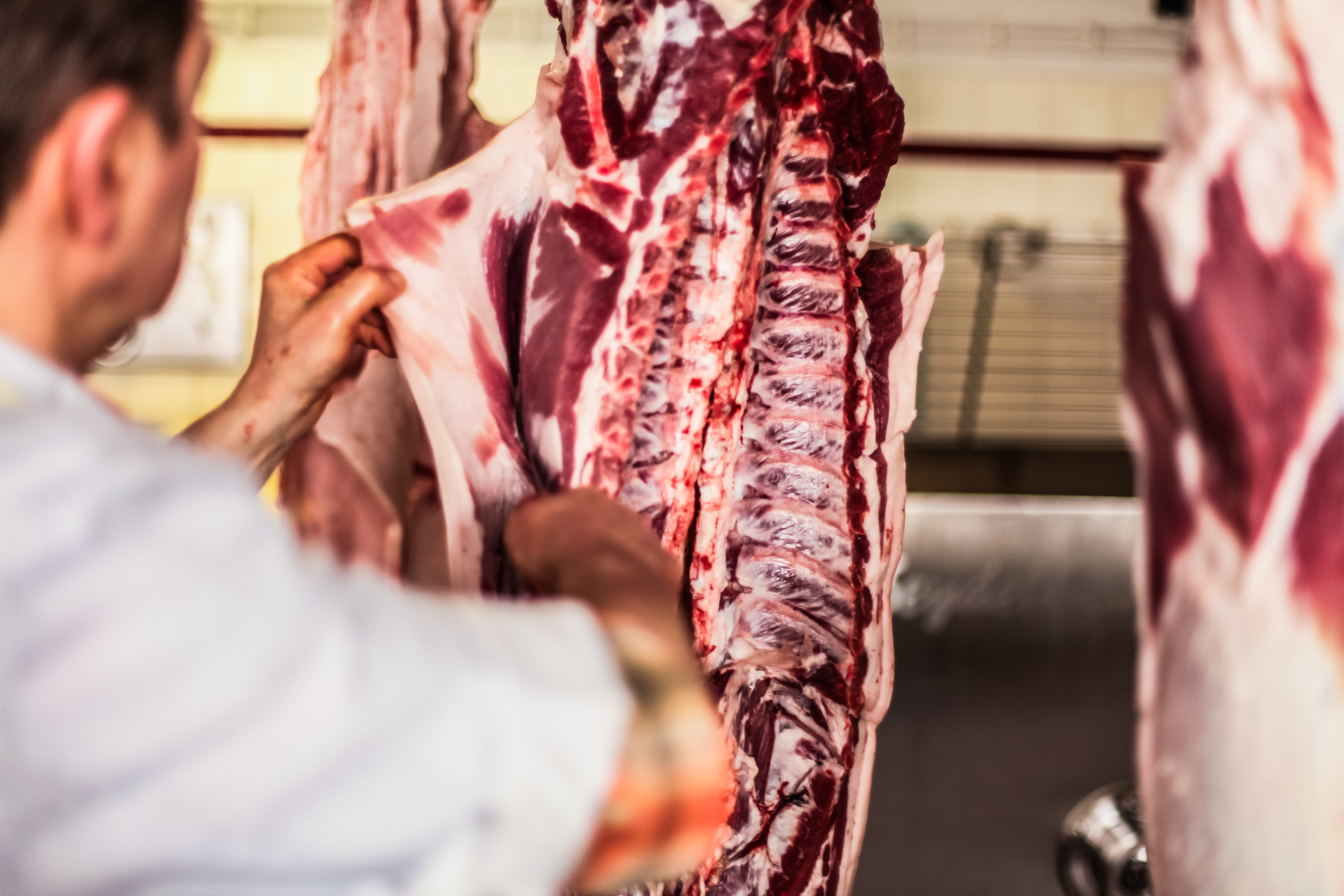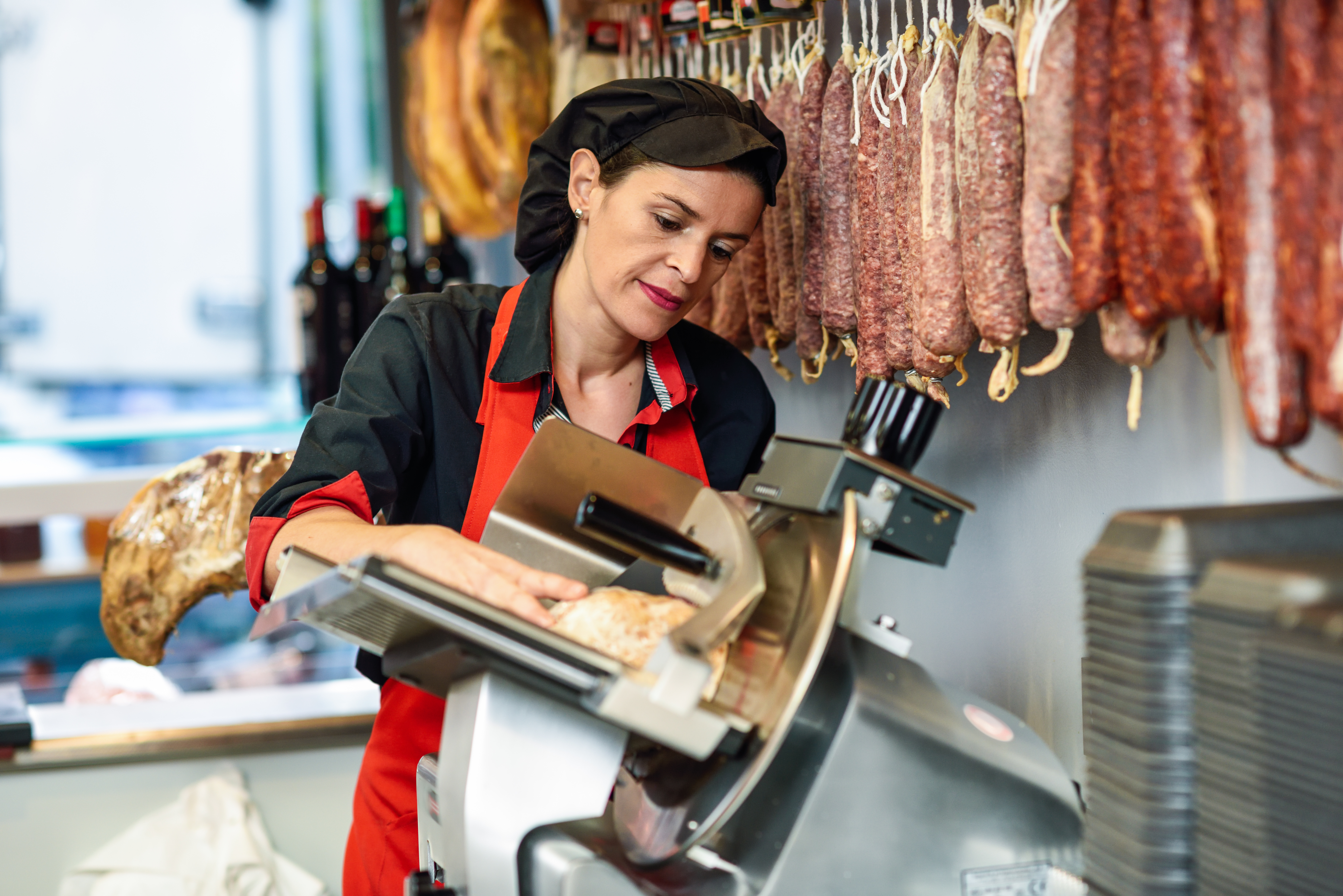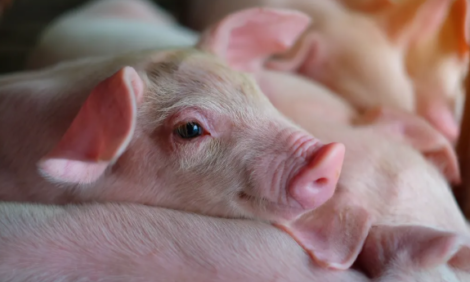



DIY or outsourced pig butchering: which is best for a small farm?
If you’re getting started in the pig farming industry and working at a small scale, then you’ll need to know whether butchering your pigs yourself or outsourcing this task makes the most sense.In 2015, figures showed that over 100 million pigs were being butchered for meat in the United States alone.
If you’re getting started in the pig farming industry and working at a small scale, then you’ll need to know whether doing it yourself or outsourcing this task makes the most sense.
Fortunately, there are a few questions you can ask yourself to determine if it would be best for you to DIY pig butchering or hire out this task.
Do I have the skills and knowledge to butcher pigs?
Without prior experience, butchering pigs can be a difficult task. If you want to butcher your own pigs, we recommend you find someone to learn from or take a hands-on workshop in your area. There are a couple of things that can happen if you attempt to butcher pigs without the right skills or knowledge.
First of all, improper techniques are potentially dangerous for you or the pigs. This starts with the kill method you’re using. Some methods come with inherent risks to the user, including captive bolt guns which, if you don’t properly line up the shot, can wind up severely injuring swine instead of killing them humanely.
The other concern with inexperience when processing animals is that the meat can become tainted. An example of this is when gutting - if you cut in too deep, you risk puncturing the colon or intestines. If this happens, the meat can become contaminated with faecal matter, presenting a severe health risk.
Processing the meat requires even more training because you need to know exactly where to make cuts and which tools to use. This prevents waste and ensures that your customers are getting the cuts they want. To learn it yourself, you’ll need to apprentice under an experienced butcher.
If you don’t feel comfortable butchering your own pigs and aren’t able to get the skills needed in advance, it’s best to take them to a professional and work on gaining that knowledge for your next round of pigs.

What equipment is needed for butchering?
Often, cost is a huge determining factor when deciding if you should take care of something yourself or leave it in the hands of professionals. Obviously, if you don’t have the proper equipment, then you shouldn’t try to butcher your own livestock.
Here’s a list that includes most of what you need to butcher your own pigs:
- Backhoe, tractor, or other heavy machinery that can move and lift pigs
- Dispatching tool (gun, stun gun, etc)
- Scalding pot and a way to heat it
- Scraping tools to remove hair
- Hooks and chains for hanging pigs
- Set of sharp butchering knives
- Bone saw
- Hose
- Sink
- Buckets for holding entrails
- Cleaning supplies
- Packaging supplies
- Freezer(s)
Depending on how you have your operation set up, you may also need holding pens or a way to move live pigs to your dispatching or butchering location. The overall cost will vary greatly based on which equipment you choose and how much you already have on hand.
Can I transport pigs to be butchered?
If purchasing all the necessary equipment to butcher your own pigs isn’t an option right now, then the next question you have to ask is whether or not you can transport your livestock to a butcher where they can then be dispatched and processed.
To do that, you’ll need to have a trailer large enough to fit the number of pigs you plan on butchering at one time. You may also borrow a trailer or hire someone to move pigs if needed, but it’s best to own your own equipment.
The main concern with transporting pigs to be butchered and the reason many small operations avoid this is that animals become stressed during transportation. This causes them to release stress hormones which can negatively impact the taste and quality of the meat.
This is also why many small operations prefer a combination of at-home dispatching and professional processing. If you can dispatch, eviscerate, and cool the meat yourself, you can then take it to a butcher where they can do the rest. For this, you’ll still need a way to transport several hundred pounds of meat, but that’s typically easier than transporting live animals.
What laws need to be followed to sell meat?
If you’re only raising pigs to feed your own family, then you can skip this section because you don’t need to worry about following any laws. You will, however, want to be sure you’re following safety regulations to avoid making your family sick from improperly-handled meat.
Every country, state, and even county will have different laws about how meat can be sold. For that reason, you’ll need to do your own research about what your specific area requires.
In many cases, meat needs to be processed at a facility that holds certain government-created certifications if it’s going to be sold to the public. If you want to slaughter and process pigs at your own facility, you’ll need to make sure you have all of these certifications.
Something else to consider is if you have a contract with a buyer. They may have certain requirements you need to meet or certifications you need to have to sell to them. Always ask about these when you start the negotiation process to avoid problems down the line.
DIY or outsourced butchering: which is right for you?
If you have the skills, knowledge, equipment, and certifications to butcher your own pigs, it’s a great way to improve your profit margin since you won’t be paying someone else to take care of this part of the process.
If you aren’t prepared to butcher your own pigs, then you’ll need to find someone that can do this for you. Fortunately, you can choose to outsource as much or as little of this process as you’d like.
You can also choose to do a mixture of these two depending on your situation. This can help you save money by doing some steps yourself while ensuring your meat is professionally cut and ready to be sold to individuals or stores.

Learn more about pig butchering
With this information, you should be better prepared to decide if DIY or outsourced pig butchering is going to be best for your small pig operation. You may also choose to combine these if it will help you increase your profit margins.
To learn more about the process of pig butchering, please explore The Pig Site. A number of helpful articles are available, including How stress affects meat quality. Expanding your knowledge of pigs will aid your success at any level of pig farming.









